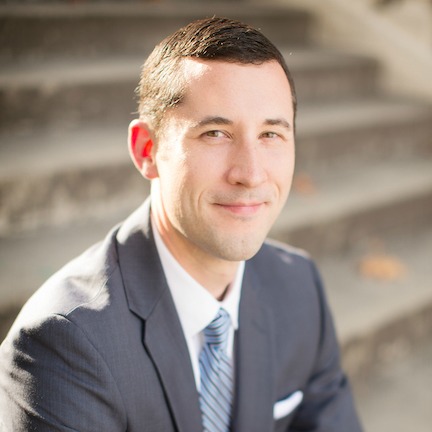Page 354 • (13,262 results in 0.054 seconds)
-

Responsibilities Applied Saxophone Lessons, Coaches Chamber Ensembles Biography Praised by the Tacoma News Tribune for his “effortless lyricism” as well as his “smooth tone and fluid virtuosity,” saxophonist Erik Steighner has performed with ensembles including the Austin Symphony Orchestra, the Federal Way Symphony, the Northwest Sinfonietta, the Pacific Northwest Ballet Orchestra, the San Antonio Symphony, and Symphony Tacoma. Steighner teaches at Pacific Lutheran University and Tacoma Community College
Office HoursMon - Fri: - -
Administration Minor Why PLU? I’m from Minnesota and knew that I wanted to experience a new part of the country. I looked at schools in the Pacific Northwest because my favorite food is salmon (seriously!). My family had never heard of PLU until I got a postcard in the mail during my junior year of high school. It was the Lutheran heritage that attracted me here and the study away opportunities that sold me. My PLU experience: After four years of being a part of the Lute community and through many
-
fall 2013 by Lost Horse Press. His poems have appeared in such places as The Georgia Review, Virginia Quarterly Review, The Iowa Review, Kenyon Review, Carolina Quarterly, The Laurel Review, Mississippi Review, Poetry Northwest, and the anthology Long Journey: Contemporary Northwest Poets (Oregon State University Press), and are forthcoming in The Florida Review, Cimarron Review, The National Poetry Review, and elsewhere. His interviews with writers have been widely published. He writes essay
-
, privilege, and oppression when considering family structure and development. We recognize that families’ intersecting social contexts influence the meaning of family, relational functioning, and changes over time. Throughout the semester, we will study how race, gender, social class, immigration, religion, spirituality, sexual orientation, and other factors impact family development. You will take part in several projects, including a group cultural “immersion,” a religious community observation, and on
-
especially during the Portuguese Colonial period from 1920 to 1974. This had a major impact on their society and molded much of their art into what is seen today. The Makonde are an agrarian kin-based and matrilineal society. They adhere to an ancestrally based spirituality, despite pressures to convert religiously and adjust economically to the capitalist market. Their matrilineal social structure, meaning ancestry is traced through the female line, is rooted in their creation story, which speaks of the
-
during the Portuguese Colonial period from 1920 to 1974. This had a major impact on their society and molded much of their art into what is seen today. The Makonde are an agrarian kin-based and matrilineal society. They adhere to an ancestrally based spirituality, despite pressures to convert religiously and adjust economically to the capitalist market. Their matrilineal social structure, meaning ancestry is traced through the female line, is rooted in their creation story, which speaks of the first
-
during the Portuguese Colonial period from 1920 to 1974. This had a major impact on their society and molded much of their art into what is seen today. The Makonde are an agrarian kin-based and matrilineal society. They adhere to an ancestrally based spirituality, despite pressures to convert religiously and adjust economically to the capitalist market. Their matrilineal social structure, meaning ancestry is traced through the female line, is rooted in their creation story, which speaks of the first
-
during the Portuguese Colonial period from 1920 to 1974. This had a major impact on their society and molded much of their art into what is seen today. The Makonde are an agrarian kin-based and matrilineal society. They adhere to an ancestrally based spirituality, despite pressures to convert religiously and adjust economically to the capitalist market. Their matrilineal social structure, meaning ancestry is traced through the female line, is rooted in their creation story, which speaks of the first
-
during the Portuguese Colonial period from 1920 to 1974. This had a major impact on their society and molded much of their art into what is seen today. The Makonde are an agrarian kin-based and matrilineal society. They adhere to an ancestrally based spirituality, despite pressures to convert religiously and adjust economically to the capitalist market. Their matrilineal social structure, meaning ancestry is traced through the female line, is rooted in their creation story, which speaks of the first
-
physical activities. The activity program is characterized by a timely response to student interests in the varied recreational sport and lifetime leisure opportunities available in the Pacific Northwest.General Education Program ElementFour different one-semester hour courses (PHED 100-259), which must include PHED 100, are required for graduation.Our DegreesThe department offers two degree programs: the Bachelor of Arts Degree in Kinesiology (B.A.K.) with teacher certification option, and the
Do you have any feedback for us? If so, feel free to use our Feedback Form.


